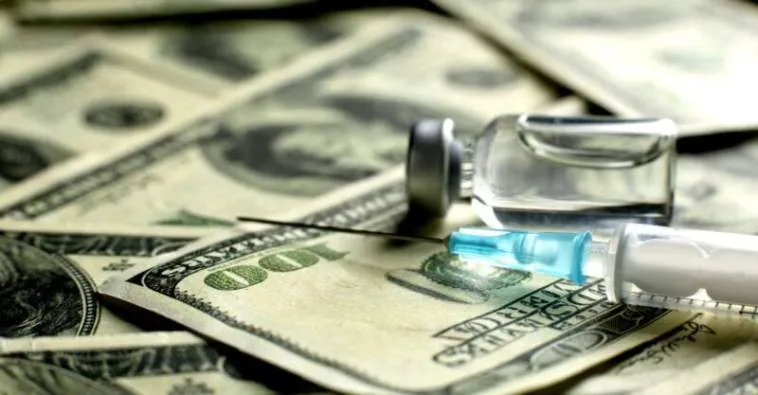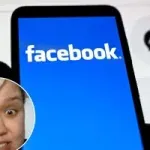(The Defender) The Centers for Disease Control and Prevention (CDC) since 2021 has doled out hundreds of millions of dollars in grants for the creation of “culturally tailored” pro-vaccine materials and for training “influential messengers” to promote COVID-19 and flu vaccines to communities of color in every state across the country.
 Credit: Centers for Disease Control and Prevention
Credit: Centers for Disease Control and Prevention
The grants are contingent on grantees assisting the government in the enforcement of “federal orders related to quarantine and isolation” — effectively making the grantees enforcers of U.S. health agencies’ recommendations and federal mandates.
Grant recipients also are required to collect community-level data and provide it to the CDC. All of the grants stipulate:
“The recipient is expected to provide to CDC copies of and/or access to COVID-19 data collected with these funds, including but not limited to data related to COVID-19 testing. CDC will specify in further guidance and directives what is encompassed by this requirement.”
Grantees received money for developing educational materials to “combat disinformation and misinformation” about the COVID-19 vaccine and for training “trusted community voices,” such as community-based organizations (CBOs), teachers, faith leaders, local DJs, shop owners and others, to spread the word in formal and informal spaces.
The CDC also awarded money to groups that organized pop-up vaccination clinics in communities of color, which typically have lower vaccination rates.
The money for the grants, now two years into a five-year grant period, come from COVID-19-related federal funding opportunities, such as the Coronavirus Preparedness and Response Supplemental Appropriations Act and the CARES act, according to the grant documents.
Grant recipients must comply with “existing and future directives and guidance” from the U.S. Department of Health and Human Services (HHS), the CDC’s parent organization, regarding the control and spread of COVID-19.
In recent congressional hearings on the federal response to COVID-19, CDC Director Dr. Rochelle Walensky underscored that CDC recommendations are not mandates. However, in the case of these grants, financing is conditioned upon compliance.
Several of the grants are awarded to umbrella organizations that then distribute the funding to subgrant awardees. The CDC grant requirements extend to all subgrantees as well.
Much research and many organizations across the country have been dedicated to understanding and overcoming “vaccine hesitancy” — particularly among Latino and African American people —often framing it as a way to fight racial and economic injustice by creating “health equity.”
The medical establishment often blames this “hesitancy” on factors like “misinformation” and past and present trauma inflicted by the medical system, claiming these and other issues confuse people’s thought process — instead of acknowledging that some people reject the vaccines on the basis of informed decision making.
The details of the grants, available on USASpending.gov, reveal a nationwide effort by the CDC to change thinking about COVID-19 and flu vaccines among racial and ethnic groups “experiencing disparity” by bankrolling locally based community organizations, physicians of color and medical associations.
$200 million to spread the CDC message via CBOs
In a request for applications (RFA) with a March 2021 deadline, the CDC announced it would provide four national-level organizations with approximately $10 million per year each over five years to fund and provide technical support to 50-100 CBOs “with strong ties to racial and ethnic minority communities” in order to “increase the range of trusted community voices supporting vaccine education and delivery.”
According to the RFA, “CBOs are the ideal messengers” for the CDC’s message, able to communicate CDC messaging on vaccines to local people in ways the CDC cannot.
But “the federal granting process could prove to be a significant barrier for many small, specialized CBOs with strong community ties to participate in the funding program,” so the CDC is working through intermediary organizations to fund the community organizations.
“Without partnerships, the capacity to build trust and amplify messages in communities would be severely hampered,” the RFA said.
 Credit: Centers for Disease Control and Prevention
Credit: Centers for Disease Control and Prevention
This grant funds grantees to “equip influential messengers” with training and materials, so they can convince people in communities “experiencing racial and ethnic disparities” of the importance of vaccination, increase vaccination opportunities in those communities and establish relationships with local health departments.
The grantees are charged with identifying CBOs with “the credibility, connections, and ingenuity to implement vaccination-related activities to the priority race/ethnic communities experiencing disparities.”
They also provide subgrants and support — via information, trainings and materials — so the organizations can do this work.
The grantees are responsible for collecting data on all of the activities of the CBOs and reporting it to the CDC.
The subgrantees — the CBOs themselves — identify and train “trusted community-level spokespersons” like “faith leaders, teachers, community health workers, radio DJs, local shop owners, and barbers” to communicate the burdens of the flu and COVID-19 and the importance of vaccination through media/social media, faith-based locations, community events and “culturally appropriate venues.”
They also are charged with connecting vaccine providers with places of worship, community organizations, recreation programs, food banks/pantries, schools and colleges/universities, grocery stores, salons/barber shops/beauticians, major employers and other key community institutions to set up temporary and/or mobile flu and COVID-19 vaccination sites, especially in communities experiencing disparities, and advocate that places already providing healthcare also provide flu and COVID-19 vaccines.
The CDC made the $200 million grant opportunity available to only four organizations — the Urban Institute, the CDC Foundation, Community Catalyst and RF Catalytic Capital, part of The Rockefeller Foundation.
The CDC said it identified these four organizations as having the ability to find and appropriately support CBOs across the country.
The CDC Foundation is an independent nonprofit created by Congress to “mobilize philanthropic and private-sector resources” to support the CDC’s work. But in this case, it is using CDC resources to mobilize the private sector.
The Urban Institute is a nonprofit research organization that provides data and evidence to help advance upward mobility and equity, according to its website.
Community Catalyst is a nonprofit organization that seeks to reform the healthcare system to be more equitable. Their executive director, Emily Stewart, is the former vice president of public policy at Planned Parenthood.
The CDC funded only those three organizations, but RF Catalytic Capital implemented a similar privately funded program with nearly 100 CBOs as part of its “Equity First Vaccination Initiative.”
Subgrantees located in African American, Latino, Native American and other communities across the country received grants ranging from $75,000 to over $2 million with most grants averaging between $100,000 and $200,000 per year.
Grantees commit to the activities outlined in the CDC’s RFA, including training local trusted voices, holding events and vaccination clinics and pop-ups to “combat misinformation” and “increase vaccine coverage.”
Typical projects from among the hundreds that were funded include:
- The Boston YMCA’s plans to create pop-up vaccine clinics.
- The Iowa Public Health Association Foundation’s plan to hire a black-owned media marketing company to create a “vaccine storyteller’s project,” using “authentic voices to encourage vaccination.”
- The Atlanta NAACP’s plan to pay social media influencers and digital marketers to “positively influence audiences” with respect to vaccine uptake.
- A project to train “vaccine ambassadors” in Orange County, California, to combat “vaccine misinformation and disinformation” in the Latino community.
- CARECEN’s campaign to inspire day laborers and other spanish-speaking immigrants to get vaccinated through conversations, neighborhood vaccine drives, and a social media campaign.
- Mississippi’s HCC network’s project to offer $200 to people living well below the poverty line and to migrant workers to attend “listening sessions” on vaccination where they will also be offered vaccination.
- Asian Services in Action’s plan to create pro-vaccine materials in Mandarin, Karen, Nepali, Burmese, Pashto, Dari and Swahili and circulate them on social media, in events at Asian American community centers and provide 500 people with “direct assistance” to be vaccinated.
Some of the larger grants include $2,345,210 to The Public Good Projects (PGP) — a public health nonprofit “specializing in large-scale media monitoring programs, social and behavior change interventions, and cross-sector initiatives” and working to “combat the vaccine infodemic” — to address misinformation by improving social media policies, and by working to:
“continuously detect and assess misinformation by using PGP’s novel and validated social listening systems and media monitoring methods. PGP will deploy its project vector while expanding its focus on prioritized communities of color.
“Finally the project will reactively intervene on misinformation through alerts to media and social media platforms, a novel nationwide influencer network activated through social media and email alerts containing explanation and talking points, and a novel network of community-based organizations supported through explanation, talking points and tailored media content.”
Almost $3 million went to a creative design agency called Insomniac Design to create the Vaccine Resource Hub — a national database providing “diverse, culturally relevant and accurate materials that community-based organizations (CBOs) and the public can use to educate and inform their community about vaccines” — and a chatbot that would help users locate data, and collect data from them.
Approximately $2.8 million went to Culture One World to create a “team-vaxx” “super-team” that includes a “social listening and analytics” company called Reingold Communications and a team of social, digital and influencer companies to work with CBOs to “dismantle vaccine-related falsehoods and conspiracy theories, combat misinformation online and offline, and increase vaccine trust among their constituents.”
This grant is part of the CDC’s Partnering for Vaccine Equity program. It is also a supplement to the CDC’s Racial and Ethnic Approaches to Community Health program, in existence since 1999.
The grant supports activities to eliminate “disinformation and misinformation,” but does not specify what that consists of.
Over the course of the pandemic, CDC officials themselves have been found to make false or misleading claims with respect to COVID-19, including about vaccine safety and efficacy and natural immunity.
The CDC also offered other funding to develop tools to combat misinformation and disinformation, the Defender reported.
$5 million for ‘We Can Do This — Si Se Puede’
Another grant opportunity, with a Jan. 19, 2021, deadline, offered $5 million over five years to up to three professional and medical organizations to “reduce racial and/or ethnic disparity” among adults for flu and COVID-19 vaccine uptake.






